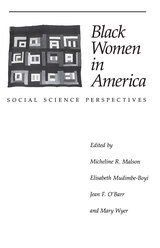
An eloquent introduction to the development of Black feminist thought, Black Women in America encourages the discussion of broader issues, such as the treatment of cultural diversity in American higher education.
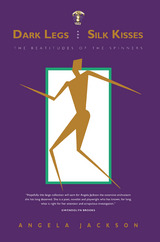
Angela Jackson brings her remarkable linguistic and poetic gifts to the articulation of African-American experience. The recurrent motif of the spider, which she presents as both creator and predator, demonstrates her deliberate reshaping of myth in the context of contemporary human experience. Informed by African-American speech and poetic traditions, yet uniquely her own, these poems display Jackson's stylistic grace, her exuberance and vitality of spirit, and her emotional sensitivity and psychological insight.
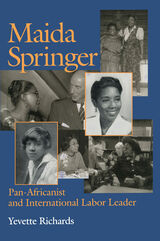
Richards explores the ways in which pan-Africanism, racism, sexism and anti-Communism affected Springer’s political development, her labor activism, and her relationship with labor leaders in the AFL-CIO, the International Confederation of Free Trade Unions (ICFTU), and in African unions. Springer’s life experiences and work reveal the complex nature of black struggles for equality and justice. A strong supporter of both the AFL-CIO and the ICFTU, Springer nonetheless recognized that both organizations were fraught with racism, sexism, and ethnocentrism. She also understood that charges of Communism were often used as a way to thwart African American demands for social justice. As an African-American, she found herself in the unenviable position of promoting to Africans the ideals of American democracy from which she was excluded from fully enjoying.
Richards’s biography of Maida Springer uniquely connects pan-Africanism, national and international labor relations, the Cold War, and African American, labor, women’s, and civil rights histories. In addition to documenting Springer’s role in international labor relations, the biography provides a larger view of a whole range of political leaders and social movements. Maida Springer is a stirring biography that spans the fields of women studies, African American studies, and labor history.
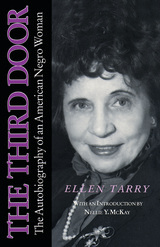
Tarry relates her life against the background of a changing American society
In pursuit of her dream of becoming a writer, Tarry moved to New York, where she worked for black newspapers and became acquainted with some of the prominent black artists and writers of the day, particularly Claude McKay and James Weldon Johnson. Her devotion to the church found expression in social work activities, first in Harlem, then in Chicago, and, during World War II, in Anniston, Alabama, where she directed a USO for black soldiers stationed at Fort McClellan. Tarry wrote several books for young readers, including biographies of James Weldon Johnson and Pierre Toussaint. She continued her social work career after the war and now lives in New York.
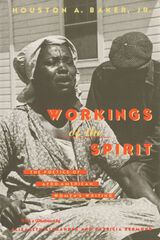
"Brilliant, and tenderly riveted to gratitude as an indispensable facet of analysis, Houston Baker arrives, yet again, bearing the loveliest flowers of his devotion and delight: thank God he's here!"—June Jordan
READERS
Browse our collection.
PUBLISHERS
See BiblioVault's publisher services.
STUDENT SERVICES
Files for college accessibility offices.
UChicago Accessibility Resources
home | accessibility | search | about | contact us
BiblioVault ® 2001 - 2024
The University of Chicago Press









